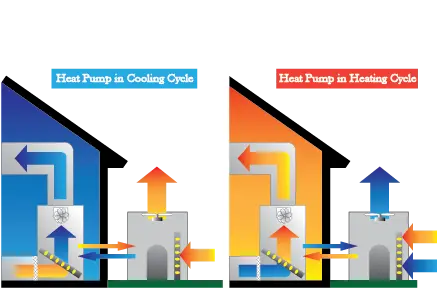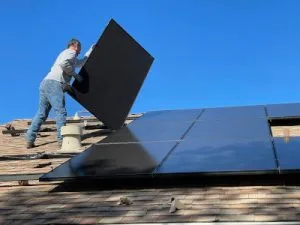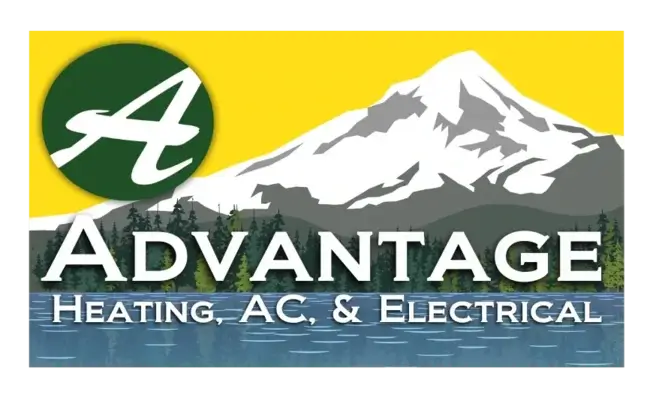What Does a Heat Pump Cost? 2022
How do we get the best results for less money? This is a question we ask ourselves whenever we make a large purchase. You don’t want to get a cheap product that will need to be replaced in 5 years. You also don’t want to break the bank. This question gets asked a lot when it’s time to purchase a new HVAC system. The answer for some may be a heat pump. So how much does a heat pump cost?
In Oregon, it typically ranges from $5,500 to $11,000.
That’s just the market average in an urban environment. It can range far outside those bounds based on many circumstances.

It’s not unheard of for a heat pump installation to cost more than $30,000.
In this post, we hope to give you an idea of what a heat pump costs. That way, you know what to expect and can make an informed decision when you’re talking with a HVAC sales professional.
What is a Heat Pump?
A heat pump is a machine that helps exchange heat between the inside of your home and the outside world. This means it can take heat from outside and put it in your home, or it can take heat from inside your home and shunt it outside. A heat pump can replace your furnace and AC unit, or you can use it in tandem with a full HVAC system.
How Does It Work?
A heat pump works by using the laws of thermodynamics. Heat moves to areas where there isn’t as much heat. The machine itself just helps facilitate that movement.
The heat pump will pull heat from the environment and push it into your home during the cold seasons. It also has refrigerant lines to help cool air in your home during the hot seasons. That means that if you live in a temperate climate that doesn’t experience extreme weather, you could handle all your heating and cooling needs with just a heat pump.

What Kinds of Heat Pumps Are There
There are several kinds of heat pumps and they all source heat in different ways. Of course, that means that each heat pump will cost a different amount.
Air-to-Air
This is the most straightforward heat pump. An air-to-air heat pump works like the name implies. It sources heat directly from the air outside and pumps it into your home. This type of heat pump costs anywhere from $4,500 to $11,000 on average.
Ductless
A ductless heat pump functions the same as an Air-to-Air but does not use any ductwork. Instead, they provide air to one or more indoor units (heads). That means you won’t need to worry about the compatibility of existing ducts or installing new ones. This one ranges between $4,500 to $20,000. This price varies based on the amount of indoor units needed.
Geothermal
This is where things get more complicated. A geothermal heat pump pulls heat from either underground or from a body of water. This, of course, means there will be additional costs involved. There will have to be some excavating and the refrigerant lines will have to be placed underground. A geothermal heat pump could cost from $6,000 to $20,000 on average and potentially much more.
Solar
The process by which a solar heat pump works is simple, but the technology involved is very complex. A solar heat pump captures heat using solar panels and uses that thermal energy to heat your home. Of course, you will need to pay for the solar panels involved. You could expect a solar heat pump to cost between $18,000 and $39,000.

Dual-Fuel
A dual-fuel system is a combination of a traditional HVAC system and a heat pump. The heat pump should be enough to make your home comfortable when the weather is mild. Once the weather gets too extreme, the furnace will generate the additional heat required to keep you from freezing. Adding a heat pump to an existing system could cost anywhere between $4,500 to $11,000 on average.
Factors That Affect Heat Pump Cost
As you can see, even within the same style of heat pump, there is a wide range of prices. Other factors have a large impact on the cost. Without getting into the minutia, here are some of them.
- Is Excavation Required?
- Installing and Wiring Solar Panels
- Is Any New Ductwork Required?
- Local Permits Required
- Quality of Brand
- Quality of Contractor
- SEER Rating of Heat Pump
- If the Heat Pump is a Variable Speed or an Inverter Model?
How Quality Affects Cost
Those last three bullets can affect the cost of your heat pump and the cost of operation. While a higher quality brand and contractor are going to be more expensive, they could save you a ton of money in the long run.
First, you need to make sure the heat pump is the right size for your home. A heat pump does not use the same BTU to square footage ratio as a furnace or air conditioner would. Outside factors play an even bigger role in how effective a heat pump is for you.
A high-quality contractor is going to make sure you have the right pump. They will install it in a way that maximizes lifespan and reduces energy consumption.
A high-quality brand is more likely to back its product with a substantial warranty. This means both length of time and what parts it covers. If something happens and your heat pump breaks down, you won’t be increasing your cost with a replacement.
Now let’s talk about what the HSPF and SEER rating mean to you.
Benefits of a Heat Pump
Heat pumps have Heating Seasonal Performance Factor (HSPF) and Seasonal Energy Efficiency Ratio (SEER) ratings that tell you how energy efficient they are. The HSPF tells you how efficient it is at heating and the SEER tells you how efficient it is at cooling. A higher HSPF and SEER rating means it uses less energy to produce heating or cooling. That means less spending on energy.
An example of how these look: the Daikin Fit Heat Pump has a SEER of up to 18, and an HSPF of up to 10. That means that under optimal conditions, it will have to be more efficient than the Energy Star Standard.
Heat pumps already use less energy than a furnace or air conditioner. An extremely efficient heat pump is going to save even more energy. Not only does this make heat pumps an eco-friendly option but also an energy-bill-friendly option.
Depending on your unique circumstances, you could save up to 50% on energy usage.
Installing a heat pump may also make you eligible for a state tax credit. A local HVAC sales professional would know if your state has credits and if you would be eligible.
Downsides to a Heat Pump
As with all technology, a heat pump is not without its downsides. Heat pumps are much more finicky technology than a traditional furnace. There are more moving parts, which means it’s more prone to failure.
On average, a heat pump will only last 10-15 years. Traditional furnaces have an expected lifetime of 20 years. Heat pumps may also need repairs more frequently as they incur wear and tear.
A good warranty can help mitigate that cost by taking the burden off you as the purchaser. However, the best solution is to maintain your heat pump proactively. A break down could cause time without heating or cooling at home.
So, How Much Will a Heat Pump Cost You?
As we went over in this post, the cost of a heat pump can vary. It could be as low as $2,500 if you’re just buying a used, small, low-quality unit with no warranty and no installation. It could be as high as $40,000 if you’re purchasing a big unit with the best solar panels and no-hassle installation.
The only way to know how much a heat pump will cost is to contact your local sales professional. Your sales professional will pay your home a visit and get to know what your goals and needs are. Then, they will run a load calculation to figure out the perfect unit for you.

No two homes are exactly the same and no two people have the same lives. A sales professional from a high-quality contractor will make sure you have the best heating and cooling solution for your lifestyle.
Who Are Advantage Heating and Air Conditioning?
We are your local HVAC Experts out of Salem, Oregon. We hope that gave you the information you need to make an educated decision when purchasing your new Heat Pump. If you have other questions about HVAC systems, check out our other blogs. To learn more about who we are and how we can help you, visit our website and follow us on social media – we’re here when you need us!







